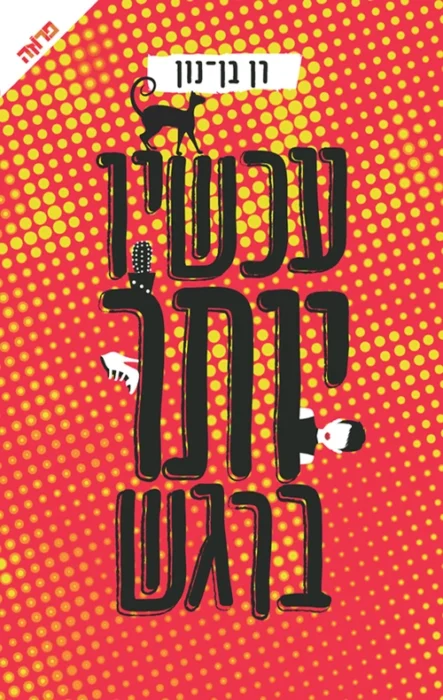Please scroll down for an English review.
ספר על גבר תל אביבי שממציא לעצמו אלטר אגו נשי, ובדרך מגלה עד כמה הוא רחוק מהדימוי שיש לו על עצמו.
רובי ירחי, עורך עמודי התרבות במקומון תל אביבי שנמצא על סף גסיסה, מקבל הזדמנות שלא תבוא שוב, תפקיד סגן עורכת במגזין הנשים הנוצץ "שיק". הוא ממציא דמות פיקטיבית בשם גאיה פאנק, שאמורה להיות הקול של "הנשיות החדשה". מה שהתחיל כתרגיל עריכה הופך במהרה לפלישה של גאיה אל חייו האישיים, עד שהיא נהיית כמעט ישות עצמאית בראשו.
תוך כדי הכתיבה בשמה של גאיה, רובי נכנס לזוגיות כפולה עם שתי נשים שונות מאוד זו מזו, שכל אחת מהן נוגעת בצד אחר של האישיות והמיניות שלו. כאן טמון הפוטנציאל של הספר, התבוננות על זהות, מגדר ויחסים דרך מבט כפול, גברי ונשי.
בפועל, הפוטנציאל הזה מתבזבז. העלילה נשענת על גימיק יותר מאשר על דמויות חיות. הקול הנשי של גאיה נשמע מאולץ, כאילו נכתב כדי להרשים, ולא מתוך היכרות אמיתית עם החוויה הנשית. במקום להעמיק במערכות היחסים, הסיפור בוחר שוב ושוב להיגרר לעוד תיאורי סקס ולעוד הברקות ניו אייג'יות שלא באמת מחזיקות מים.
יש קטעים חינניים, יש משפטים חכמים, אבל התחושה הכללית היא של ניסיון מתאמץ מדי להיות שנון, מתוחכם ורלוונטי. הרעיון הבסיסי, גבר שמנסה לכתוב מנקודת מבט נשית ומסתבך, היה יכול להמריא, אך נשאר במעוף נמוך עד שהוא מתרסק.
עכשיו יותר ברגש/ רן בן נון
הוצאת ידיעות ספרים, 2017, 205 עמ'
דירוג SIVI –
איכות אודיו –

A novel about a Tel Aviv man who invents a female alter ego, only to discover how far he is from the image he has of himself.
Robi Yarchi, culture editor at a dying Tel Aviv local paper, lands a once-in-a-lifetime opportunity: the position of deputy editor at the glamorous women’s magazine Chic. As part of his new role, he creates a fictional persona named Gaia Funk, meant to be the voice of “the new femininity.” What begins as an editorial exercise quickly turns into an invasion of Gaia into his personal life, until she becomes an almost independent presence in his mind.
While writing under her name, Robi embarks on a double relationship with two very different women, each touching a different facet of his personality and sexuality. Here lies the book’s potential – an exploration of identity, gender, and relationships through a dual perspective, encompassing both male and female viewpoints.
In practice, this potential is squandered. The plot relies more on a gimmick than on fully realized characters. Gaia’s female voice feels forced, as if written to impress rather than from genuine familiarity with the female experience. Instead of delving into the complexities of the relationships, the story repeatedly drifts into more sex scenes and New Age witticisms that fail to hold water.
There are charming moments and clever lines, but the overall feeling is of a book trying too hard to be witty, sophisticated, and relevant. The basic premise of a man attempting to write from a woman’s perspective and getting tangled up could have taken off, but instead, it remains low-flying until it crashes.
לגלות עוד מהאתר Sivi's Books
Subscribe to get the latest posts sent to your email.

